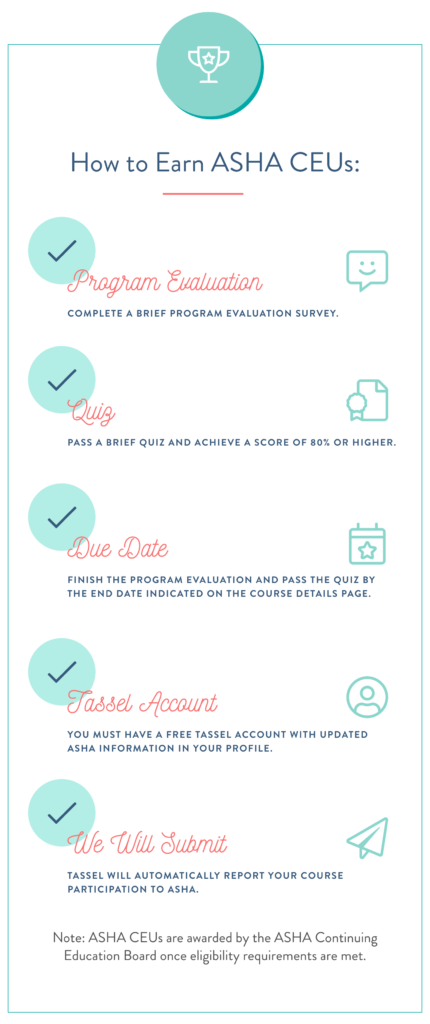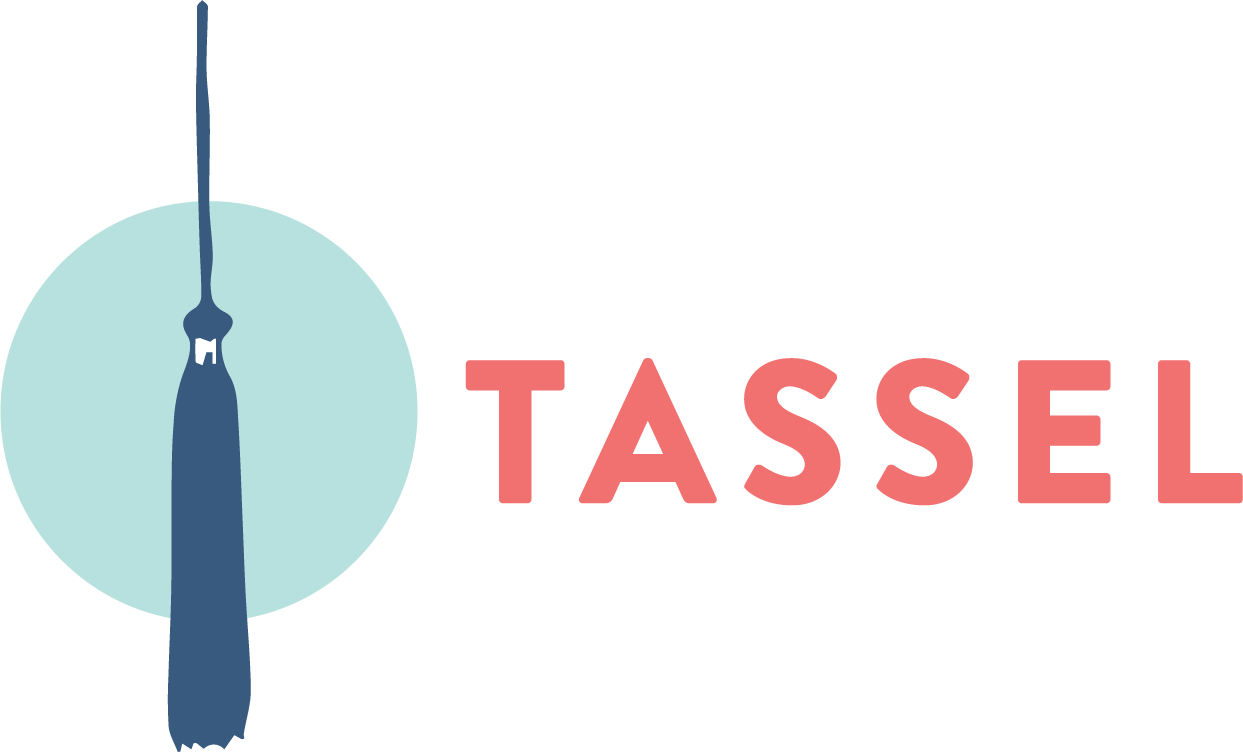Course Number: ABIO2121
When: Available July 1, 2022 – October 20, 2026
Where: Audio available once you register under “Course Content” at the bottom of this page.
Description: This session discussed important factors, signs, and symptoms of tongue-tie. This session also explored evidence-based Myofunctional therapy and the controversy surrounding tongue-ties. The speakers discussed how this type of therapy relates to private practice, as well as, other SLP settings.
Who This Course Is Good For:
- Any ASHA member, CCC holder, or other professional that is licensed or credentialed to practice speech-language pathology (SLP) or audiology or preparing to earn ASHA CEUs.
- A professional who works with pediatric clients that have limited natural speech, speech development disorders, or speech sound disorders.
- Any professional who works with pediatric clients that have feeding and swallowing difficulties.
- Any professional who is seeking to learn more about the treatment and assessment of pediatric Myofunctional therapy.
- A speech-language pathologist (SLP) who wants to evidence-based techniques based on emerging research.
Who This Course Isn’t Good For:
- Any professional who is not interesting in Myofunctional therapy.
- Any professional that does not currently work with any pediatric clients or plan to in the near future.
Presenters:

Venita Litvack, M.A, CCC-SLP
Venita is an Assistive Technology (AT) Consultant in south Florida. She has a passion for using AAC, AT, and literacy to support individuals with complex communication needs, autism, and other disabilities. Venita has delivered poster presentations on several topics related to AAC at ASHA and co-presented several ASHA CEU accredited courses. Venita co-authored two articles published in ASHA Leader’s online publication, as well as the Lou Knows What to Do book series published by Boys Town Press. Recently, Venita started utilizing the power of social media to empower and motivate educators across the country through the Speechie Side Up podcast, blog, Instagram account, and YouTube channel.

Kayla Fontenot, M.A., CCC-SLP, COM©
Kayla Fontenot is a Speech-Language Pathologist and IAOM Certified Orofacial Myologist®. She helps clients across the lifespan, from infants to adults, to speak, eat, and live with optimal oral function. Her approach to therapy is integrative. She examines the way that the muscles work during speaking and eating to identify problems such as muscle imbalance, lack of strength, compensation, tethered oral tissues, and motor planning. She works with a network of providers to ensure that clients are able to achieve all of their goals both in, and out of speech therapy.
Kayla has worked in hospitals, rehab centers, and school districts across the state of Texas. She has been in private practice since 2011. Kayla is licensed in the state of Texas and hold the Certificate of Clinical Competency from the American Speech Language and Hearing Association (ASHA).
She founded Flower Mound Speech & Therapy Center in 2015 because she saw a need to provide in-depth, personalized services for her clients. Her team believes in going beyond the one-on-one therapy session to provide their clients continuing education and excellent client care.
Disclosure Statements
Venita Litvack has the following relevant financial relationships to disclose: ownership interest in Speechie Side Up, LLC and Tassel Learning, LLC; royalties from the Lou Knows What to Do book series.
Venita Litvack has the following relevant nonfinancial relationships to disclose: member of the ASHA Special Interest Group 12.
Kayla Fontenot has the following relevant financial relationships to disclose: is the owner of Flower Mound Speech & Therapy Center and receives speaking fees. Receives compensation for rendering services to clients. Receives financial compensation as a Myo Mentor for Feed the Peds: The Myo Membership.
Kayla Fontenot has the following nonfinancial relationships to disclose: is a TalkTools Level 3 Therapist and member of ASHA and the IAOM.
THIS COURSE IS OFFERED FOR .10 ASHA CEUS
(INTRODUCTORY LEVEL: PROFESSIONAL AREA)

Learning Outcomes
As a result of this activity, participants will:
- Identify three signs/symptoms of tongue-tie release.
- Describe the controversy surrounding tongue-ties.
- Describe of Myofunctional therapy.
- Explain 3 ways this therapy can be applied in private practice & other therapy settings.
- Explain 3 factors to consider in oral mechanism evaluations.
Agenda
| 10 min | Introductions and Backgrounds |
| 14 min | Description of signs/symptoms of tongue-tie release |
| 5 min | Discussion of controversy surrounding tongue-ties |
| 12 min | Description of Myofunctional therapy |
| 13 min | Discussion of how this therapy can be applied in different settings |
| 6 min | Discussion of considerations to make in oral mechanism evaluations |
Complaint Policy
To file a complaint or ask general questions about the complaint filing process, please contact our support team at info@tasseltogether.com
Refund Policy
Click here to read more about our refund policy.
Requirements

Course Content

